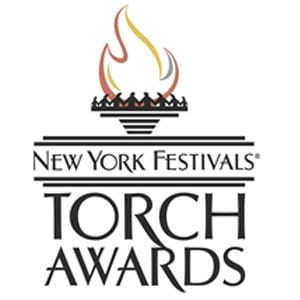 We didn’t bring home the grand prix, but we came pretty close. I was one of several under-25-year-old Ketchum employees that entered the Young Torch Awards, a pitch contest for young creative talent. Last month we learned we were selected as one of five finalists from hundreds of applicants around the world.
We didn’t bring home the grand prix, but we came pretty close. I was one of several under-25-year-old Ketchum employees that entered the Young Torch Awards, a pitch contest for young creative talent. Last month we learned we were selected as one of five finalists from hundreds of applicants around the world.
Along with my fellow Ketchum teammates, Jordan Drake, Sam Emrich and Hannah Freedman (whose ages don’t add up to 100 years between the four of us), we tackled the challenge to develop a strategy and creative idea for Road Recovery, a non-profit organization that targets teens suffering from a variety of mental health issues. Taking on everything from teen addiction to risky behavior, Road Recovery uses music to empower teens. Our challenge was to develop a creative strategy, with roots in social media, to raise awareness of Road Recovery’s mission and ultimately boost involvement in their programs.
We pitched “Lay Down a New Track,” a creative platform that fueled tactics ranging from simple social media contests, to a double decker bus concert in New York’s Times Square, to a good old-fashioned rock and roll road trip.
What we learned from the pitch process was invaluable. Here are some of the highlights from our time carrying the young creative torch for Ketchum:
1. RISC works.
RISC – Ketchum’s approach to smart client programing – is rooted in the belief that to get to great Creative, you need a smart Strategy, fueled by authentic Insight and sharp Research. When we pitched our platform, the judges applauded our sound and logical thinking, the client said we offered the most pragmatic creative, and felt that RISC led the way to a great creative platform that would deliver.
2. Balance the person and the product.
Another thing the judges taught us was not to bury the human insight. While strategy informs the creative, it’s important to remember that the human insight is what really resonates in the room. For an organization with a vast scope of offerings, our strategic insight, which we applied to the client, was that the simpler the call to action, the stronger the message will resonate. We could have benefitted by also highlighting the human insight that applied to the target.
3. If it walks like a duck and talks like a duck, it’s safe to say it will judge like a duck.
Know your audience (or your judges). Although the Torch Awards were billed as a discipline-agnostic creative competition, the all-advertising jury did not work to our advantage. In hindsight, we should have tailored our language to the advertising brains in the room.
4. Creativity transcends disciplines.
We all need to tout our creative skills more often. As the only PR finalists in an ad dominated competition, we proved that great creative transcends silos.
Along with our fellow finalists, we’re being raised as communications multitaskers. Move over Mr. Draper, there’s a new crop of creative kids in town.


